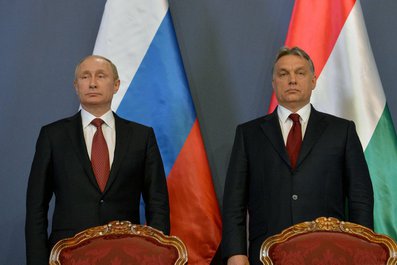President Putin’s visit to Budapest on 17 February has raised eyebrows externally and provoked protests within Hungary. The first bilateral visit of the Russian President to an EU country since the Ukraine conflict erupted, since June 2014 in fact, happens at a time of renewed European sanctions on Russia and a precarious ceasefire in Ukraine.
Many Hungarians who disagree with their Prime Minister feel that their country is drifting to the East, while its present and future lies with the West. Combined with Mr. Orban’s authoritarian style of government and related measures he has passed with his parliamentary majority, one wonders whether he is one of very few leaders still associating with the Russian President because of ideological affinities. The latter’s search for friends in recent days has only led him to a trip to Egypt, where he met the military-backed President Sisi.
Prime Minister Orban does have some valid points for explaining his association with Mr. Putin. For his own country, the supply of Russian gas is key for its energy security, and an agreement reached with Mr. Putin in that regard is reassuring for Hungary. There were also further areas of cooperation for which agreements were signed, from healthcare and education to nuclear energy that certainly have benefits for Hungary.
For the EU, Mr. Orban says that European security can only be built with Russia and not against it, something that Angela Merkel also referred to recently at the Munich Security Conference. The authoritarian affinities between Messrs Orban and Putin are more worrisome in the long run. To counter them what is needed is bottom-up civic action and credible political opposition within each country, as well as respectful but firm pressure from outside.



